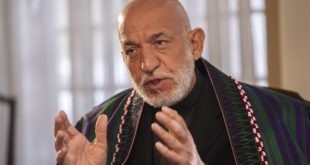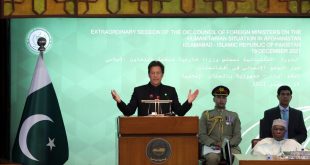The government had repeatedly outlined its efforts to fight corruption at the top and grassroots level. However, the output is still zero. Whether the authorities are reluctant to accelerate their efforts or they are engaged in something else, but the graft culture is earning bad reputation for the country. Unfortunately, when the leaders are criticized for their failures, they take it as personal attack. It is understood that without realizing our mistakes we could not improve ourselves. Therefore, the culture of manipulation and giving mere statements, to win donations, should be discouraged. It will not benefit Kabul at all but would create more challenges for the already troubled government.
Most certainly, another challenge is in the making because the donors have hinted to stop supporting the Afghanistan’s Independent Joint Anti-Corruption Monitoring and Evaluation Committee (MEC) for spending the donated amount irresponsibly. The Wall Street Journal reported that the USAID and other donors are concerned over the spending of the funds by MEC. The donors are also concerned over performance of the Afghan anticorruption committee. Very recently the EU Ambassador, Franz-Michael Mellbin, expressed concerns over the rampant corruption in Afghanistan. He suggested that the Afghan officials involved in corruption should be brought to justice; otherwise the graft culture would continue to absorb the donations without leaving any trace. Transparency International also pointed to the corruption but in defense sector of the country.
At this point one thing is clear that corruption is not only a nightmare for Afghans but for the international community as well. The more the government wastes time, the more pressure will build up and the level of assistance will drop further. Decrease in donations will land the government into the troubled water, further deep. Kabul cannot bear the blowback of shrinking international support at this critical juncture, especially when the government has no alternative to meet the expenses and run the state machinery effectively. As Afghanistan is a consumer country and depends on donations, therefore, the government had to accelerate its fight against the corruption to prove that donations would not be wasted but utilized in better manner for development of the country and welfare of public.
As a first step, the government should arrest the high-ranking officials involved in corruption. It will not only send a positive signal to the donors but will also discourage corruption at the grassroots level. The sense of fear will prevent the officials from corruption. It will restore trust of public and international community over the Afghan government.
To do so, the government should introduce reforms in the judiciary system so those involved in corruption could not escape justice. Speedy trial is imperative to see the anti-corruption campaign successful. Land-grabbing and violation of merit policy in the recruitment process are also serious types of corruption. Therefore, the government should discourage these types of corruption at the very power center. Ministers, advisors, governors and other officials who are violating the merit policy in recruitment process should be brought to the court of justice. Moreover, those who have grabbed state-owned and public lands should be given exemplary punishment to discourage the culture of corruption and restore the lost trust.
 Afghanistan Times
Afghanistan Times



